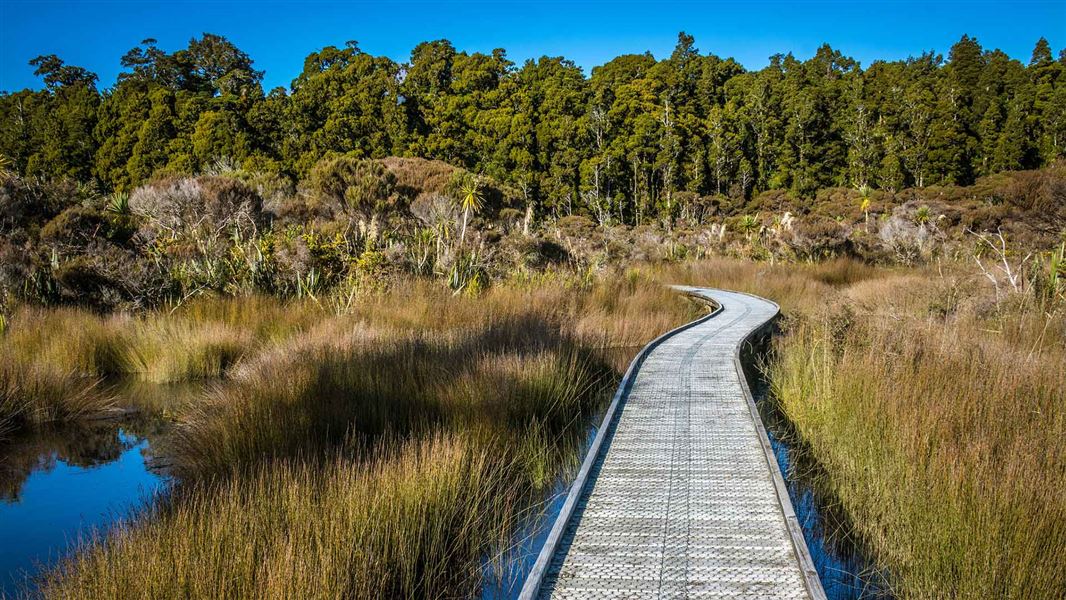Archived content: This media release was accurate on the date of publication.
Date: 02 February 2022 Source: Office of the Minister of Conservation and Minister for the Environment
“We’ve lost 90 per cent of our wetlands since human habitation, which is one of the highest rates of loss in the world. We must protect what remains,” Environment Minister David Parker said.
“Strong protections along with our significant investment and efforts to restore and re-establish them, are an important part of the Government’s commitment to improve freshwater health and management. Protecting and restoring wetlands is a key aspect of the Government’s Essential Freshwater reforms.”
Recent consultation on the wetland regulations included options that recognise specific instances where some activities are necessary, like a quarry. There would continue to be strong protection through the policy of no further loss of wetland area or values. Any losses will need to be offset to ensure no net loss.
To mark World Wetland Day the Department of Conservation has published reports on five New Zealand Ramsar wetland sites.
“Wetlands provide numerous benefits including protecting and improving water quality, providing a rich habitat for taonga species, a hauanga kai (food gathering), as well as storing floodwater and maintaining surface water flow during dry periods,” Conservation Minister Kiri Allan said.
Wetlands hold large stores of carbon. When undisturbed, they absorb and retain carbon from the air, sometimes for thousands of years. When wetlands are drained they become a source of greenhouse gas emissions.
“Preventing the destruction of wetlands can help avoid greenhouse gas emissions as well as provide a range of other environmental, biodiversity, and community benefits.”
David Parker said the Government is supporting numerous projects to restore wetlands via the Jobs for Nature programme or the Nature Heritage Fund, in collaboration with regional councils, iwi and hapū, communities and land-owners.
“To date, 192 freshwater restoration projects have been approved to receive Jobs for Nature funding. Many of these projects involve wetland restoration as a core objective.”
The Government has also contributed $11.2m towards the purchase of a farm near Lake Horowhenua that will be converted to wetland to help improve water quality in the lake.
Kiri Allan said that Jobs for Nature funding is employing people on wetland restoration projects.
“This includes DOC’s Arawai Kākāriki programme, which focuses specifically on restoring Ramsar sites at Whangamarino and Awarua-Waituna, and the Fonterra Living Water partnership – which includes some wetlands projects – is coming up to its nine-year anniversary,” Kiri Allan said.
David Parker said another key project aims to restore at least 30 hectares of the Wairarapa Moana wetland through indigenous planting and pest control across 1000 hectares of wetlands and surrounding land. Wairarapa Moana was recognised as a wetland of national significance under the Ramsar Convention in August 2020.
Kiri Allan said that sectors across the board are doing great work to restore our precious wetlands.
“These efforts are producing gains, but we need to focus on climate change impacts and improving the management of catchments, as well as increasing wetland restoration activities.”
Background information
World Wetlands Day is celebrated each year on 2 February to raise awareness about wetlands. This day is also the anniversary of the Ramsar International Convention on Wetlands, which was adopted in 1971 and signed by New Zealand in 1976.
Contact
For media enquiries contact:
Email: media@doc.govt.nz
